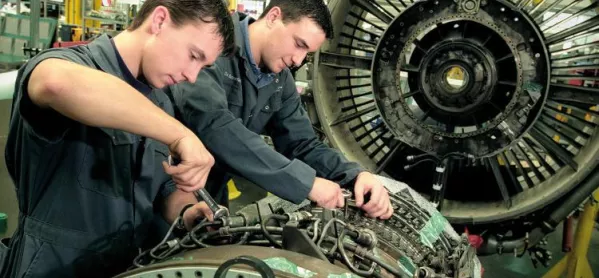You might assume that a career in engineering would require solid grades in maths and physics. Yet one university has decided to fly in the face of this long-held approach to attract a new range of students - a move which is long overdue.
Last week, Britain’s first specialist engineering university, New Model in Technology and Engineering (NMiTE), announced it would take school-leavers without A-level maths or physics to boost the number of female students, when it opens in 2020.
NMiTE believes that if we are to get a wider, more diverse range of people into engineering - something we drastically need to do - then we must reassess the demands we make of them before their careers have even begun. The university will instead accept applicants with any three A levels.
This is an approach that should be welcomed; yet if we are to really make strides forward in the long term, we need to take this a stage further. We need to ask why young women aren’t leaving school with the desire to pursue a career in engineering.
According to the latest Create the Future report by the Queen Elizabeth Prize for Engineering, which polled 10,000 people across 10 countries, the demand for skilled engineers does not meet supply. This situation is unsustainable and must be tackled at entry level if we are to meet our economic growth potential.
Young engineering role models
More than three-quarters of respondents stated that they viewed a career in engineering as valuable, lucrative, stable and prestigious. Yet for young people, this clearly doesn’t translate. In classrooms, engineering has a reputation problem, with the term used so widely that children struggle to identify what an engineer does - unlike a doctor, lawyer or nurse.
Ask a child what they think an engineer looks like and the likelihood is they’ll picture a man in overalls rather than someone in Silicon Valley working on the latest iPhone development. It is precisely this disconnect which contributes to the global skill gap in the engineering sector. To tackle this in schools, we must introduce children to inspiring, young engineers as early as possible, and make what they do an exciting possibility.
Young people must be shown that engineering drives the things they enjoy day-to-day. Engineering is behind things we all take for granted liked roads, bridges, railways, electricity generation and clean water, but it is also behind AI, robotics, games consoles, smartphones and wearable technology - some of the most exciting recent technological developments.
I would urge schools to explain to their students the immense career possibilities that come through becoming an engineer - whether that be building the latest technology, fighter jet, computer or tablet. During my schooling, I had no idea what engineering was, and it was only through receiving a leaflet promoting it as a career option that I ever considered it a viable option - this came about through luck rather than judgement.
NMiTE’s announcement presents a second chance for many who have ruled out a career in engineering. Long term, if we can instil this approach more widely, we’ll produce a more varied range of engineers to drive the innovations of the future. The classroom is the best possible place to begin.
Yasmin Ali is an ambassador for Queen Elizabeth Prize for Engineering
